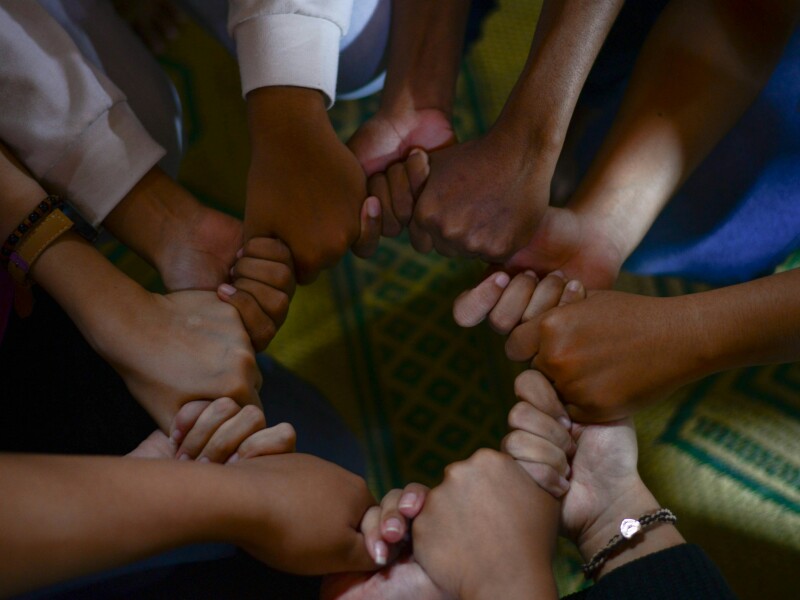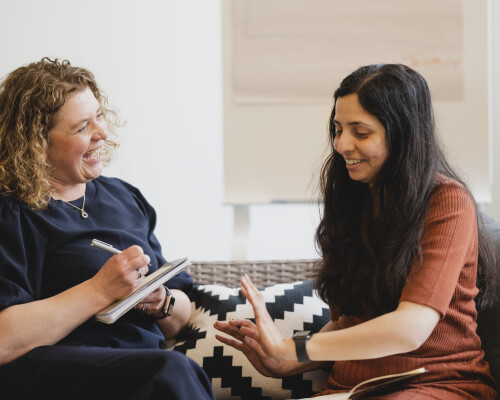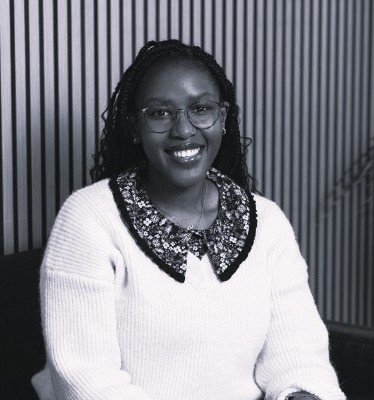National Inclusion Week’s theme, Now is the Time, lands at a pivotal moment. Across industries, leaders face unprecedented complexity: economic uncertainty, technological disruption, and cultural shifts reshaping expectations of work. Against this backdrop, allyship is emerging as a critical leadership skill.
This instalment of our View from the Top series draws on the experiences and perspectives of Fiona Murden, psychologist, author, and coach; Ken McMeikan, CEO of Moto Hospitality; and Nick Mackenzie, CEO of Greene King.
What is Allyship, Really?
As Fiona Murden explains:
“Allyship starts with awareness, deepens through connection, and creates change through action.”
It begins with noticing when someone might need support, then building trust through listening, and finally taking meaningful action that respects that person’s autonomy. Crucially, allyship is not about “saving” someone – it’s about being curious, asking what help is truly welcome, and stepping up with courage when the moment calls for it.
For Ken McMeikan, allyship began with recognising imbalance.
“When I joined Moto seven years ago, one of the first things we did as a leadership team was ask: how representative are we of our customers? We quickly saw some big imbalances. We knew we had to encourage people from within the business, create opportunities for them, and also look at how we recruited. We believed then, and still do, that we’d make better decisions for our customers if our workforce reflected them.”
Mackenzie echoed this call for leaders to be active participants rather than distant supporters in our Leadership Insights podcast:
“It’s important that I champion inclusion, but it’s just as important that I learn and unlearn. Leaders can’t just support from a distance — you’ve got to be part of it.”
Allyship, then, is not about token gestures. It is about building representation, listening to colleagues’ experiences, and acting to create fair opportunities and better business decisions.
Why Do People Become Allies?
For many, allyship is driven by empathy and fairness. Murden reminds us:
“We’ve all felt overlooked or misunderstood. If you’re in a position to prevent that for someone else, why wouldn’t you?”
McMeikan’s motivation comes from deeply personal values shaped by childhood, career, and family.
“My mother always said the more successful you are, the greater the responsibility you have to help others. Then, through the Navy, I saw first-hand the prejudices that existed around the world and here in the UK. Later, as I became more senior, I realised I could either cast a shadow or radiate sunshine. As leaders, we have a huge impact—not just on workplaces, but on people’s lives.”
Research supports this lived experience. Pro-social motivation (acting for the benefit of others) has been shown to boost workplace belonging, wellbeing, and performance.
In our podcast episode, Mackenzie points to humility as a driver:
“We don’t always get it right, but what matters is being honest, listening, and being willing to change. That’s the only way you build trust.”
The Organisational Impact
The ripple effects of allyship are powerful. Employees who feel supported show higher engagement, retention, and trust. And when leaders openly role model allyship, it encourages imitation across teams.
One of the most transformative steps Moto Hospitality took was Reverse Mentoring. McMeikan recalls:
“One of the most profound things we did as an operating board was Reverse Mentoring. My mentor helped me see the world through her eyes—her family culture, her experiences growing up, the prejudices she faced. I thought I understood the challenges intellectually, but she gave me an emotional and empathetic understanding I’d never had before.”
As Murden emphasises:
“You can be a great ally quietly, but when you name it — when you say, ‘This is allyship’, it signals to others what good looks like.”
Beyond DEI Labels
Allyship is sometimes framed as just part of diversity and inclusion. McMeikan disagrees:
“For me, it’s not an initiative—it’s a way of life. If you’re not careful, initiatives go in and out of fashion. But inclusion should be part of your DNA. It’s about consciously creating a culture where everyone feels they have a voice. That’s how you build long-term sustainability.”
Murden echoes this perspective:
Allyship is not new; it has always been core to how communities thrive.
How Leaders Can Take Action
So where should leaders start?
McMeikan’s advice is simple but powerful:
“Start small. Find a reverse mentor. Go into it as a pupil, with humility. Forget your title, your position, your status. Your mentor may be very junior compared to you in the workplace, but in their knowledge of lived experience, they are the teacher. If you build that relationship with openness and humility, the richness of what you’ll learn is immense.”
Other practical steps for leaders include:
- Stay curious – ask questions rather than assume.
- Reflect on your story – when were you helped, and how can you replicate that?
- Name it – call out allyship when you see or practise it.
- Create safe spaces – encourage honest conversations.
- Stay accountable – measure, reflect, and adapt.
Now is the Time
History shows progress happens when people step up for one another. In today’s world, allyship is not optional, it’s essential.
As McMeikan puts it:
“As leaders, we’re not just shaping workplaces—we’re shaping lives. We have no excuses. The environment we create is the culture people take home with them.”
Awareness. Connection. Action. Without all three, allyship falls short. Now is the time for leaders to make it part of how they lead.
If you are interested in learning more about how School for CEOs supports organisations through Reverse Mentoring, email info@schoolforceos.com to speak to a member of our team.






